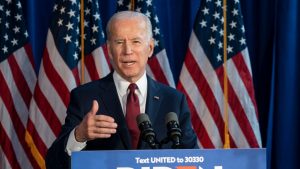CertainTeed Gypsum Canada is praising a ruling by the Canadian International Trade Tribunal (CITT) recognizing that dumped U.S. drywall imports into Western Canada are hurting its business, but also slammed the tribunal for not relying on "complete information."
"Both high dumping margins and material injury have now been affirmed twice by Canadian authorities," reads a statement from CertainTeed’s general manager, Matthew Walker.
"It validates CertainTeed Gypsum Canada’s anti-dumping complaint that western Canadian manufacturing has suffered material injury from large volumes of U.S. drywall imports sold at low prices with huge dumping margins."
However, the CITT also recognized tariffs as high as 276 per cent were hurting Canadian companies and is proposing lower tariffs, some relief in fixed-price contracts and some sort of refund. This finding was the result of an unprecedented expedited process requested by the construction industry.
CertainTeed stated that the recommendations were based on a "limited amount of data available" and are cause for concern.
The company noted it supports short-term relief for contractors who established fixed-price contracts prior to the imposition of the duties, but is concerned with implementation of such relief.
"Any provisional duty remission or temporary final duty remission should only be paid to and for the benefit of contractors and not U.S. importers who are dumping," stated the company.
"CertainTeed Gypsum Canada does not support any temporary remission that would condone continued injurious dumping in Western Canada."
Walker added he is concerned the proposed six-month remission and duty reduction could condone and encourage dumping.
"Continued dumping at high margins puts at risk the job security of employees rehired by CertainTeed Gypsum Canada in our western Canadian plants, jeopardizes our ability to increase investments in Western Canada, and undermines any prospect that idled western Canadian plants will reopen and create significant jobs and investment in the western Canadian drywall industry," stated Walker.
CertainTeed added it does support an exclusion for home rebuilding in the Fort McMurray, Alta. region that was ravaged by wildfires last year.
Some of those in the industry who are facing the brunt of the high tariffs and price hikes by CertainTeed state they aren’t encouraged by the recommendations either.
"It is unclear how it is going to be implemented," said Peter Gallagher, vice-president and part owner of Gallagher Bros. Contractors Ltd. in Surrey, B.C.
Following the 276 per cent duties put on imported drywall, which increased product costs by over 50 per cent in some cases, WSB Titan, a supplier, approached federal Finance Minister Bill Morneau to initiate a parallel inquiry into the damage it was doing to the public, Gallagher explains.
He and others testified at the CITT inquiry in Edmonton about how the preliminary tariffs intended to assist one Canadian company were damaging hundreds of others.
"We went to the tribunal and brought more awareness to what the actual hurt was for the industry," Gallagher said, noting that he and five others who testified showed more than $1 million in costs combined has been added to their projects.
He said for one of his projects alone, he saw a $197,000 cost increase.
The tribunal, its recommendations and the duties all stem from a dumping complaint filed by CertainTeed, which operates six gypsum board manufacturing facilities located throughout Canada.
It is the only producer of gypsum board located in Western Canada with three manufacturing facilities located in Vancouver, Calgary and Winnipeg.
In June, the Canada Border Services Agency (CBSA) initiated an investigation.
Gallagher said that he and others in the industry have never disputed whether dumping was happening or whether there should be a penalty. But the sudden implementation of heavy duties has especially hit those in fixed-price contracts, something Gallagher said was never considered and those involved in hearing the testimony had to be educated on.
"The government was not paying any attention to it when they went down the road of inquiry," he said.
Gallagher also took issue with the price increases CertainTeed put in place during the investigation process and duty implementation.
This month the CITT recognized the duties were hurting Canada’s economic interests and reducing competition. Its recommendations included that duties should be eliminated for six months to help those with fixed-price contracts already in place and then be limited to 43 per cent of the export price.
The tribunal also recommends that monies already collected be used to offset some of the increased costs paid by end-users.
"We are not throwing up the happy flag and saying it is all good," said Gallagher. "The wording of it is strange and we don’t know how they are implementing it. They are indicating that they are going to do a refund, because currently to date, the federal government has collected over $4 million in duties. That is sitting there right now."
The CITT stated there will be a refund mechanism "in whole or in part" for domestic product. Who gets the refund, how much and when is unclear.
David Holmes, business manager for International Union of Painters and Allied Trades District Council 38, an organization representing tradespeople in most facets of the finishing trades sector, also expressed concern over the unclear recommendations.
"The financial viability of our contractors is under attack," said Holmes. "We don’t want to see our guys go unemployed because these contractors go out of business due to outlandish tariffs."
He added that for as long as he can remember, the B.C. industry has relied on product produced just across the border in Washington State.
"Down the west coast, that is our natural trading corridor," he said.
More details on the recommendations and the government’s plans to implement them are expected later this month.











Recent Comments
comments for this post are closed